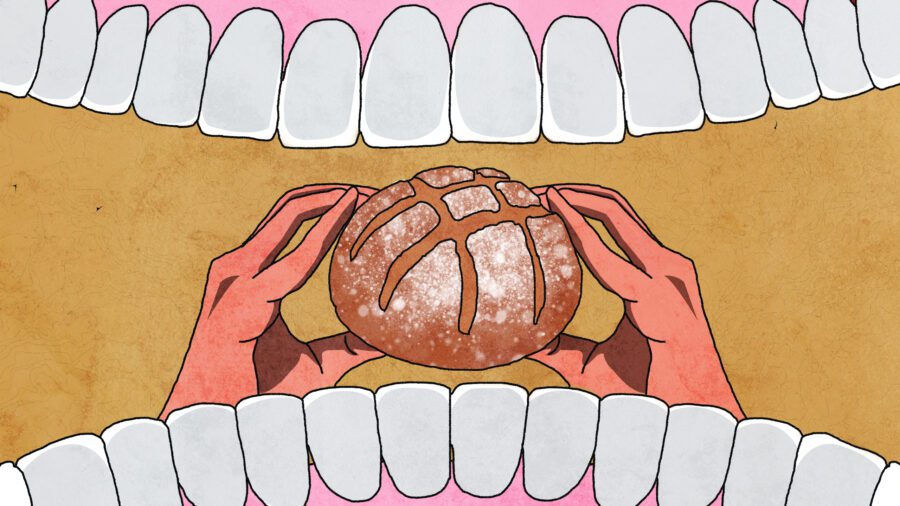
Follow Your Gut and Improve Your Digestive Health
Getting older comes with many changes to your lifestyle, from steering your diet away from unhealthy foods and toward a more natural diet, to recognizing the ways your body communicates that something may be wrong.
In addition to eating healthily, proper daily exercise and practicing healthy habits in other avenues of your day-to-day life is also essential. However, one thing stands out among the rest to achieve a long and healthy life — improving your gut health naturally and consistently.
Why Is Gut Health Important?
We all have a vast array of bacteria living in our gut called a microbiome. Scientists actually now consider your gut microbiome to be a supporting organ because it plays a significant role in keeping your entire body’s operations running correctly. Scientists can now predict what diseases or ailments you may suffer from later in life in this network of living bacteria. When we are born, this microbiome is decided by our unique DNA, and our first encounter with microorganisms is via breast milk from our mothers.
Our microbiome is shaped by what food we put into our bodies and how balanced our diet is. Everyone’s microbiome contains both good and bad bacteria, promoting a healthy body and promoting disease, respectively. In a healthy person, these good and bad bacteria coexist peacefully. Still, specific unhealthy diets can cause an imbalance in these bacteria and lead to diseases. This is why it’s essential to take care of our gut health and why maintaining a healthy diet can lead to a long life.
Although many symptoms can present themselves as a result of an imbalance in the gut, one very common side effect is fatigue. Dr. Steven Gundry, a retired cardiac surgeon-turned best-selling author and expert diet and nutritionist, suggests that the most common cause for this fatigue in America is the lack of diversity in our diet. Gundry explains that because the communication between the microbiome and mitochondria of our cells is so strong, an imbalance in the gut causes it to send messages to our cells to cease energy production. It’s no wonder fatigue has become such an epidemic with all of the processed foods we consume!
What Are the Best Foods for Gut Health and Digestion?
As a general rule of thumb, a diverse microbiome is usually considered healthy. To achieve a healthy microbiome, our diets need to contain a wide variety of different nutrients from an array of other foods.
Unfortunately, it’s pretty standard for most readily-available foods in America or Europe to be high in sugar and fat. Research shows us that people living in areas like Africa and South America have a much more diverse and, therefore, much healthier microbiome.
While effectively promoting a healthy gut, eating cuisine specific to certain regions is not always a viable option. Fruits and vegetables are the best sources of nutrients for your microbiome, as they are rich in fiber. While fiber cannot be digested by our bodies, it can be digested by certain bacteria in our gut, which stimulates their growth and diversity. Some of the best sources of fiber include:
- Raspberries
- Green peas
- Artichokes
- Broccoli
- Lentils
- Bananas
- Apples
These foods have been shown to increase gut production of Bifidobacteria, which is known to reduce intestinal inflammation.
In addition to fruits and vegetables, fermented foods promote healthy gut bacteria. Some fermented food options include:
- Yogurt
- Kimchi
- Sauerkraut
- Kombucha
Fermentation breaks down sugars in the food with active bacteria. Research shows that people who eat yogurt regularly contain less Enterobacteriaceae in their microbiome, which is a harmful bacteria causing inflammation and other chronic conditions. Keep in mind, many types of yogurt include high amounts of sugar and added flavoring, so when browsing the shelf for yogurt, make sure to select an option that contains as little sugar as possible. It is also vital to choose an option with a label that reads “contains active cultures” to make sure you are receiving all the benefits of consuming fermented foods.
Grains are another worthy example of a high-fiber food to promote a healthy gut microbiome. Studies have shown that eating whole grains can promote the growth of three essential bacteria (bifidobacteria, lactobacilli, and bacteroidetes) in the gut, all linked to reducing inflammation in the bowels and reducing the risk for certain heart diseases. Be aware that this does not apply to people with celiac disease or gluten sensitivity. More research is needed to deduce whether or not grains can still be beneficial to those with these conditions.
What Are Some Signs of an Unhealthy Gut?
Weight Gain
Gaining or losing weight without trying to is one of the most glaring effects of an imbalance in your gut microbiome. If there is a gut imbalance, your body will not absorb all of the nutrients it needs when digesting food. This can lead to overeating to make up for your body’s lost nutrients and eventually obesity.
Stress
The gut microbiome plays a significant role in your mental health and the regulation of certain hormones. If there is an imbalance in the gut, it can increase anxiety and stress or even lead to mood disorders.
Bloating or Gas
While these symptoms are a normal part of digestion for everyone, an imbalance in the gut can lead to more gas or bloating than what is considered normal, even causing painful stomach aches.
Diarrhea and Constipation
While both don’t necessarily indicate an unhealthy gut, they can certainly be indicators of an imbalance. Diarrhea can be dangerous as it can cause you to lose good bacteria through your stool, leading to even more problems and imbalance. At the same time, constipation usually indicates a lack of needed bacteria in the gut.
Sleep Problems
The hormone serotonin is responsible for mood stabilization and sleeping and is surprisingly produced in the gut. As mentioned above, an imbalance in the gut can cause a shortage of serotonin to be produced, which can eventually lead to anxiety or stress and trouble getting proper rest and remaining asleep.
What Foods Should You Avoid to Keep a Healthy Gut?
Fiber is good for our gut because only certain bacteria can digest it properly. Upon digestion of the fiber, this “good bacteria” multiplies and promotes a healthier gut microbiome. However, some common foods are not digestible by any part of our bodies and pass through our digestive system without being absorbed. This can cause damage to our gut balance, resulting in several health issues.
Artificial sweeteners such as Splenda and Equal (Sucralose and Aspartame) were linked in a recently published study to the development of harmful gut bacteria such as E.coli and E.faecalis. Drinking alcoholic beverages in excess have also been linked to developing an unhealthy gut imbalance, as well as many other known problems. The 2020-2025 Dietary Guidelines for Americans recommends that we should consume no more than two alcoholic beverages per day. Any more than that can be detrimental to our gut health and overall well-being.
Some other examples of the worst foods for your gut health include:
- Fried foods
- Red meat
- Sugary soft drinks
- Processed foods
To have a healthy gut, you don’t necessarily have to swear off these foods indefinitely; however, it is important to remember that you must consume them in moderation if you want to achieve optimal gut health.
Join In 200 Million+ On The Journey to Greatness
How Can I Get Good Bacteria in My Gut?
Prebiotics
Prebiotics have been shown to reduce insulin and lower cholesterol, making them essential in our nutrient consumption to promote the growth of healthy bacteria in the gut. Most prebiotics are fiber or complex carbohydrates that our human cells cannot digest. Hence, they become food for the bacteria in our gut.
Resistant Starches
While fruits and vegetables are excellent sources of getting prebiotics into your body, another great source is resistant starches. Resistant starches are essentially fermentable fibers and have been shown to have a profound beneficial impact on both the health of our gut microbiome as well as increasing the number of friendly bacteria.
Plant-Based Diet
Eating a plant-based diet is another great way to ensure you maintain a healthy environment for your gut. As mentioned above, consuming excess amounts of red meat can be detrimental to your gut health. A study published in 2013 suggests a strict vegetarian diet can greatly impact more than just our gut health. The study claims the diet reduced disease-causing bacteria in the gut, reduced inflammation in the body, and reduced cholesterol levels and body weight.
Keep in mind that an important annotation in this study states more research is needed to ensure the positive effects on the gut from a vegetarian diet are strictly a result of a lack of meat intake in the diet or if other factors may be involved.
Hydration and Slow Chewing
Even though it may sound trivial, staying hydrated and chewing your food slowly is one thing that many people overlook in their day-to-day lives. Sure, we all have to drink water to survive, but some may be surprised to find out exactly how much water our bodies need —it’s a lot! The U.S. National Academies of Science, Engineering, and Medicine states adult men and women should be consuming 3.7 liters and 2.7 liters, respectively.
It can be easy to have a quick meal on a lunch break or whenever you can find time in your busy schedule, but swallowing unchewed foods can cause them to pass through the body without their nutrients being properly absorbed. Instead of stuffing down foods, give yourself adequate time to slowly chew the food so it can digest properly.
Where Should You Begin with Gut Health?
Before making any drastic changes to your lifestyle, it’s best to achieve better digestive health by first starting with the most straightforward steps. Drink plenty of water, get plenty of rest, start eating unsweetened yogurt, and avoid drinking too many alcoholic beverages.
After making these simple steps a part of your daily routine, many of the others can be easily incorporated into your lifestyle, leading you to achieve greatness and live a long and healthy life. Of course, be sure to consult your doctor before making any changes to your diet and health routine to ensure that you’re doing what’s best for your body.
Here’s to happier guts and healthier lives!
Greatness Authors
Greatness Authors is a collection of writers, thinkers, curiosity experts, and students of the world who are committed to bringing you the most up-to-date, impactful, and inspiring information surrounding Greatness topics.

Do You Have to Be a Morning Person to Be Successful? Here’s What Both Sides Have to Say

9 Reasons You’re Tired All the Time & How to 10x Your Energy

How to Have a Healthy Romantic Relationship Even if You Share Different Beliefs

The 7 Best Vitamins to Naturally Promote Better, Uninterrupted Sleep According to Shawn Stevenson

The Science of Forming Healthy Habits & Letting Go of Bad Ones, According to Author James Clear












